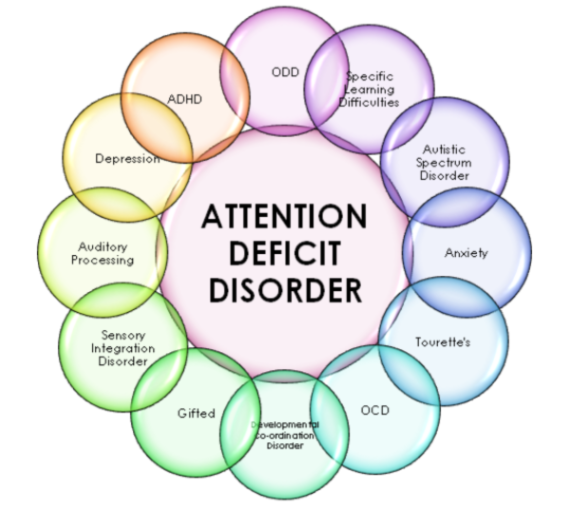While medications help in reducing the symptoms of ADHD, psychological interventions and strategies can help the individual to combat the disorder by aiming towards developing interpersonal skills and competence to live a more satisfied and enriching life. Murphy (2005) developed a multipronged approach to psychosocial approach. A few of these strategies are listed below:
1. Psychoeducation, which refers to the combination of psychotherapeutic interventions with education, has been found to be effective in helping people with ADHD not only become aware of their disorder, but also by providing them the assurance that the disorder is treatable. By providing them with the information about their disorder, they understand that the disorder is manageable and thus, are motivated to work in the therapeutic sessions.
2. Psychotherapy helps individuals with ADHD in a myriad of ways such as setting treatment goals, developing problem-solving strategies, resolving conflicts, and learning to develop skills for effective interpersonal communication. Cognitive-behavioral therapy, which suggests that changing maladaptive thought patterns and attitudes, can help in bringing about a change. Other forms of therapy such as marital and family counseling, can help in assessing how people close to individuals with ADHD are affected and help them in dealing with the stress that might follow, along with how they can help and create a better environment for the individual.
3. Coaching involves a professional who assists the individual with ADHD to implement goals in their practicality by helping them to find ways of achieving goals through a more result-oriented approach.
4. Since ADHD mainly develops in childhood, schools can play an important role in making the environment suitable for them by reducing the distractions that might occur. Teachers should encourage the child by paying special attention to their academic and social progress and giving feedback from time to time. In workplace settings, similar interventions can be implemented by the supervisors.
5. Technology-based interventions that have come up recently, have also been found to be useful since they help them with a number of tasks such as writing and spelling, communication, time management, organization and so on.
ADHD must not be looked at as a normal behavior manifested by all young children, rather it should be taken seriously by the parents and the teachers so that children can receive early treatment. In adults, explaining the disorder and the symptoms they experience can help people around them to understand the disorder better since they know that telling people about the disorder helps not only them but also the people around them to cope with the disorder in a more effective way.
Article written by - Janhavi Pore, 2nd November 2022

